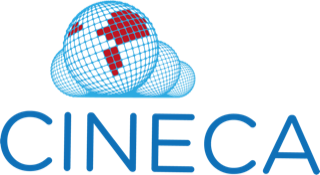Date: 24 February 2021
Time: 3:00 PM GMT / 4:00 PM CET
Materials: Slides - FAIR software tools
Location: Online
Contact: Mamana Mbiyavanga & Marta Lloret Llinares
Overview
The CINECA "How FAIR are you" webinar series continues with a presentation by Carlos Martinez Ortiz, from the Netherlands eScience Center.
In this talk, I will discuss the importance of the FAIR principles for the software tools we use to process data. Ranging from small analysis scripts to full fledged data processing pipelines, software needs to be FAIR to enable other researchers to reproduce our own experiments and reuse our software. However software and data are fundamentally different – software is executable in nature and may have intricate dependencies. FAIR principles apply differently to software than they do to data and we must be aware of these differences. Existing initiatives such as the RDA FAIR for Research Software (FAIR4RS) working group (https://www.rd-alliance.org/groups/fair-4-research-software-fair4rs-wg) and http://fair-software.eu/ are already focused on addressing these differences and raising awareness of the importance of FAIR for software.
The “How FAIR are you” webinar series and hackathon aim at increasing and facilitating the uptake of FAIR approaches into software, training materials and cohort data, to facilitate responsible and ethical data and resource sharing and implementation of federated applications for data analysis.
The CINECA webinar series aims to discuss ways to address common challenges and share best practices in the field of cohort data analysis, as well as distribute CINECA project results. All CINECA webinars include an audience Q&A session during which attendees can ask questions and make suggestions. Please note that all webinars are recorded and available for posterior viewing.
About the speaker
Carlos obtained his PhD in Computer Science at the University of Exeter. Afterwards he worked on various research projects at the University of Exeter and Plymouth University in collaboration with industrial and academic partners in a wide range of topics: automatic detection of abnormal energy consumption in buildings, video tracking of dairy cows, modelling high performance storage systems and segmentation of medical images.
At the eScience Center, he has worked as an engineer in diverse projects in digital humanities and life sciences, developing expertise in natural language processing, linked open data and software sustainability. He is also a certified Software Carpentry instructor and is frequently involved in organising trainings.
About CINECA
The CINECA (Common Infrastructure for National Cohorts in Europe, Canada, and Africa) project aims to develop a federated cloud enabled infrastructure to make population scale genomic and biomolecular data accessible across international borders, to accelerate research, and improve the health of individuals across continents. CINECA will leverage international investment in human cohort studies from Europe, Canada, and Africa to deliver a paradigm shift of federated research and clinical applications. The CINECA consortium will create one of the largest cross-continental implementations of human genetic and phenotypic data federation and interoperability with a focus on common (complex) disease, one of the world’s most significant health burdens. CINECA has assembled a virtual cohort of 1.4M individuals from population, longitudinal and disease studies. Federated analyses will deliver new scientific knowledge, harmonisation strategies and the necessary ELSI framework supporting data exchange across legal jurisdictions enabling federated analyses in the cloud. CINECA will provide a template to achieve virtual longitudinal and disease specific cohorts of millions of samples, to advance benefits to patients. It will leverage partner membership of standards and infrastructures like the Global Alliance for Global Health, BBMRI, ELIXIR, and EOSC driving the state of the art in standards development, technical implementation and FAIR data.


